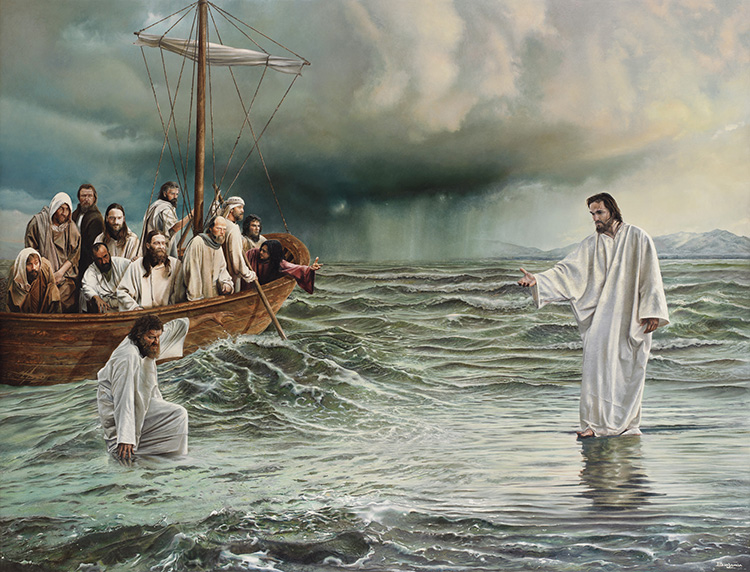This fable which mentions the earliest avatar — the Matsya — relates to another yuga than our own, that of the first appearance of animal life; perchance, who knows, to the Devonian age of our geologists? It certainly answers better to the latter than the year 2348 B.C.! Apart from this, the very absence of all mention of the deluge from the oldest books of the Hindus suggests a powerful argument when we are left utterly to inferences as in this case. “The Vedas and Manu,” says Jacolliot, “those monuments of the old Asiatic thought, existed far earlier than the diluvian period; this is an incontrovertible fact, having all the value of an historical truth, for, besides the tradition which shows Vishnu himself as saving the Vedas from the deluge — a tradition which, notwithstanding its legendary form, must certainly rest upon a real fact — it has been remarked that neither of these sacred books mention the cataclysm, while the Puranas and the Mahabharata, and a great number of other more recent works, describe it with the minutest detail, which is a proof of the priority of the former. The Vedas certainly would never have failed to contain a few hymns on the terrible disaster which, of all other natural manifestations, must have struck the imagination of the people who witnessed it.”
“Neither would Manu, who gives us a complete narrative of the creation, with a chronology from the divine and heroical ages, down to the appearance of man on earth — have passed in silence an event of such importance.” Manu (book i., sloka 35), gives the names of ten eminent saints whom he calls pradjapatis (more correctly pragapatis), in whom the Brahman theologians see prophets, ancestors of the human race, and the Pundits simply consider as ten powerful kings who lived in the Krita-yug, or the age of good (the golden age of the Greeks).
The last of these pragapatis is Brighou.
“Enumerating the succession of these eminent beings who, according to Manu, have governed the world, the old Brahmanical legislator names as descending from Brighou: Swarotchica, Ottami, Tamasa, Raivata, the glorious Tchakchoucha, and the son of Vivasvat, every one of the six having made himself worthy of the title of Manu (divine legislator), a title which had equally belonged to the Pradjapatis, and every great personage of primitive India. The genealogy stops at this name.
Page 428
“Now, according to the Puranas and the Mahabharata it was under a descendant of this son of Vivaswata, named Vaivaswata that occurred the great cataclysm, the remembrance of which, as will be seen, has passed into a tradition, and been carried by emigration into all the countries of the East and West which India has colonized since then. . . .
“The genealogy given by Manu stopping, as we have seen, at Vivaswata, it follows that this work (of Manu) knew nothing either of Vaivaswata or the deluge.”
The argument is unanswerable; and we commend it to those official scientists, who, to please the clergy, dispute every fact proving the tremendous antiquity of the Vedas and Manu. Colonel Vans Kennedy has long since declared that Babylonia was, from her origin, the seat of Sanscrit literature and Brahman learning. And how or why should the Brahmans have penetrated there, unless it was as the result of intestine wars and emigration from India? The fullest account of the deluge is found in the Mahabharata of Vedavyasa, a poem in honor of the astrological allegories on the wars between the Solar and the Lunar races. One of the versions states that Vivaswata became the father of all the nations of the earth through his own progeny, and this is the form adopted for the Noachian story; the other states that — like Deukalion and Pyrrha — he had but to throw pebbles into the ilus left by the retiring waves of the flood, to produce men at will. These two versions — one Hebrew, the other Greek — allow us no choice. We must either believe that the Hindus borrowed from pagan Greeks as well as from monotheistic Jews, or — what is far more probable — that the versions of both of these nations are derived from the Vedic literature through the Babylonians.

Moe is the founder of GnosticWarrior.com. He is a father, husband, author, martial arts black belt, and an expert in Gnosticism, the occult, and esotericism.


![How the South Saxons received Eadbert and Eolla, and the West Saxons, Daniel and Aldhelm, for their bishops; and of the writings of the same Aldhelm [705 A.D.] | Book 5 | Chapter 17 How the South Saxons received Eadbert and Eolla, and the West Saxons, Daniel and Aldhelm, for their bishops; and of the writings of the same Aldhelm [705 A.D.] | Book 5 | Chapter 17](https://www.gnosticwarrior.com/wp-content/plugins/contextual-related-posts/default.png)


It really is disturbing that you invest all this time in ancient mysteries and “cracking the code” but you can not see what is right in front of you. The “Gnostics” have been in control of this planet for a very long time. What great freedoms have free masonry won you? What paradise has your “hidden hand” crafted? It is written that a good tree can not bear evil fruit nor a corrupt tree bear good fruit. What is the fruit of this world? War, hunger, poverty and genocide-these are the fruits of the “enlightened.” Your words are sweet but they turn bitter when consumed.